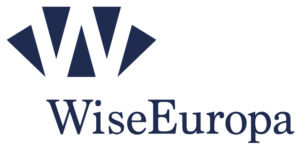 This work package encompasses the general management activities conducted to guarantee that the project meets its time plan, budget and quality requirements.
This work package encompasses the general management activities conducted to guarantee that the project meets its time plan, budget and quality requirements.
Its objectives involve the following tasks:
- Ensure efficient management and co-ordination of all project activities.
- Stimulate and support communication among project partners and between different work packages.
- Ensure good communication to key stakeholders, especially with the Experts Advisory Board (EAB), whose aim will be to guide the progress of the project.
- Secure the realisation of project goals on time and a timely management of the project budget.
- Quality control and progress monitoring.
- Risk management.
- Financial and administrative management of the project.
- Ensure compliance with all ethics requirements.
- Communication with and reporting to the Executive Agency for Small and Medium-Sized Enterprises (EASME) and to the European Commission (EC).


 This work package develops quantitative transition pathways for the New Societal Trends, including their macro- economic impacts, based on the existing demand-side models in the project team (run 1). From this, we derive a gap analysis, which will then guide further model developments and the focus analysis in WP5-7. In a second round, the quantitative transition pathways are refined and macro-economic implications evaluated (run 2).
This work package develops quantitative transition pathways for the New Societal Trends, including their macro- economic impacts, based on the existing demand-side models in the project team (run 1). From this, we derive a gap analysis, which will then guide further model developments and the focus analysis in WP5-7. In a second round, the quantitative transition pathways are refined and macro-economic implications evaluated (run 2). This work package analyses policies which can enhance the demand decreasing trends of New Societal Trends (“linking New Societal Trends and the Energy Efficiency First Principle”) and strengthen the ability to model relevant policies in demand-side models.
This work package analyses policies which can enhance the demand decreasing trends of New Societal Trends (“linking New Societal Trends and the Energy Efficiency First Principle”) and strengthen the ability to model relevant policies in demand-side models. While WP2-3 were striving to develop a comprehensive view on New Societal Trends through a quantitative modelling approach, WP5 deals with the first of three Focus Studies which dive deeper into the quantitative modelling aspects. The objective of this work package is to substantially enhance energy demand modelling in the context of the built environment regarding the transition of consumers to prosumagers* and to integrate for that purpose new data sources (such as data obtained from smart meters in residential buildings). In this way, energy demand models will be better capable in responding to policy needs.
While WP2-3 were striving to develop a comprehensive view on New Societal Trends through a quantitative modelling approach, WP5 deals with the first of three Focus Studies which dive deeper into the quantitative modelling aspects. The objective of this work package is to substantially enhance energy demand modelling in the context of the built environment regarding the transition of consumers to prosumagers* and to integrate for that purpose new data sources (such as data obtained from smart meters in residential buildings). In this way, energy demand models will be better capable in responding to policy needs.